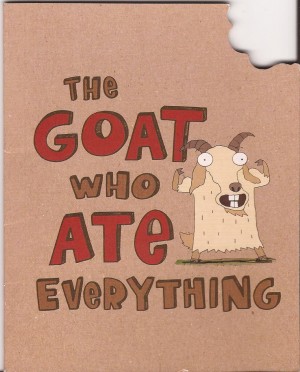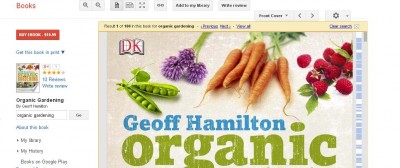How Authors Can Use Google Books For SEO And Gain Readers

The Rise Of Creative Content
How Amazon Will Kill USPS
In 2004, Google introduced a new project wherein the company scanned books at public libraries and indexed them in the search engines. Some authors didn’t like that and sued, partnering with The Author’s Guild as plaintiffs in a class action lawsuit against Google. On November 14, 2013, the presiding judge in the case, Denny Chin, issued his judgment.
He sided with Google. You can read the court order here.
How Google Books Works
Google Books is an interesting project. Even though Google scans whole books, it would be impossible for a searcher to duplicate entire books for free in such a way that he could do anything with them that would violate the copyrights of authors. Here are the technical details to back up that claim:
- Participating libraries entered into an agreement with Google to allow the search engine to scan books and back them up on its servers in exchange for the libraries receiving copies of the digital books for their collections. Some libraries gave Google access to all books in its system while others allowed Google access only to public domain works.
- Participating libraries could not obtain digital copies of books scanned from another library’s collection.
- Google’s search index links each word and phrase in each scanned book with all the locations in every book it has scanned where that word or phrase can be found. In other words, if the phrase “happy is the man who sings in the shower” is used 5,000 times in 300 different books scanned from 10 participating libraries, then when a searcher enters that phrase into the Google Books search vertical, all 5,000 of those instances could appear in the search result for that query.
- Search results for queries in Google Books, just like queries in Google’s non-vertical Web search, are based on relevance.
- When a searcher clicks a search result in Google Books, she is taken to a page that includes links to libraries that carry the book and sellers that provide the book for sale. Google makes no money from these searches since no ads appear on the pages and Google does not use affiliate programs to earn commissions.
- In “snippet view,” Google divides book pages into eighths and each eighth of a page represents a single snippet that may appear in a search result for a relevant search query.
- One of the snippets on each page is “black-listed” and will not be returned for search queries, even if that snippet is a perfect match for relevance.
- At least one out of every 10 pages of a book are also black-listed.
- SEE BLOCK QUOTE BELOW
- Books organized into short chunks, such as cookbooks, books of haiku, dictionaries, etc. are excluded from snippet view. I guess that rules out my Twitpoems. 😉
Taken from page 9 of Judge Chin’s order:
An “attacker” who tries to obtain an entire book by using a physical copy of the book to string together words appearing in successive passages would be able to obtain at best a patchwork of snippets that would be missing at least one snippet from every page and 10% of all pages.
How To Search Using Google Books
 Let’s say you have written a book on organic gardening. Naturally, you want your book to be an authority on the topic and be included in Google Books’ search index. By having your book appear in the search index for key phrases associated with the topic of organic gardening, you increase your own stature in relation to that topic and potentially increase your readership by having more readers purchase your book or check it out at their local library.
Let’s say you have written a book on organic gardening. Naturally, you want your book to be an authority on the topic and be included in Google Books’ search index. By having your book appear in the search index for key phrases associated with the topic of organic gardening, you increase your own stature in relation to that topic and potentially increase your readership by having more readers purchase your book or check it out at their local library.
A search for organic gardening at Google Books turns up 315,000 results. Some of those results are magazines. The second result is a book by Geoff Hamilton.
If I click on “Preview” above the search snippet, Google will take me to that book’s page on Google Books.
The first thing you’ll notice on that page is the eye-catching cover of the book. On the left, at the top, there’s a red button labeled “BUY EBOOK – $10.99.” Below that is a link labeled “Get this book in print.” If you click the link, you can be transported to your choice of several booksellers that carry the book or find a library that has it on the shelves. You can also read reviews of the book. Furthermore, there is an About link that will take you to a page where you can see the summary of the book, read reviews, and see a list of related books. You can even search inside the book and scan the table of contents (the chapter titles are clickable so that you can go to those pages and read).
Let’s go back to the previous page and scroll through the book. Google has highlighted all the instances in the book where the keywords “organic,” “gardening,” and “organic gardening” appear.
If I go back to the search box and search inside the book for “How is soil formed?”, then I’ll get a list of snippets – snapshots of pages (one-eighth pages) where those words are located in the book. I can click on those snapshots and go to the relevant page to read more about soil.
How Authors Can Use Google Books For SEO And To Gain New Readers
 Google Books has been around long enough that a lot of search professionals are already aware of the vertical search opportunities, but I wonder how many non-SEO professionals are aware. If you are an author in any niche, whether it be fiction, poetry, or nonfiction, then you should be aware of the opportunities for attracting new readers through search. While The Author Guild has said it plans to appeal Judge Chin’s decision, I suspect that the result will be the same.
Google Books has been around long enough that a lot of search professionals are already aware of the vertical search opportunities, but I wonder how many non-SEO professionals are aware. If you are an author in any niche, whether it be fiction, poetry, or nonfiction, then you should be aware of the opportunities for attracting new readers through search. While The Author Guild has said it plans to appeal Judge Chin’s decision, I suspect that the result will be the same.
The truth is, writing books is no different in this day of SEO-mindfulness than it ever has been. Your job as author is to write a book that is relevant to reader interests, informs and entertains, and meets reader expectations on every level.
Still, if you want to increase your chances that your book will end up in the search indexes and be found by searchers, you should give careful thought to a few of its internal elements. These are the elements you should consider. They do not appear in any order of importance or relevance. It’s just a list.
- Book Title – This may seem obvious, but judging from the “organic gardening” search results page, it looks like a book’s title is a huge factor in whether a book is relevant to a search query. In a search for “soil factors organic gardening” (without the quotes), “Soil Organic Matter And Its Role In Crop Production” Is No. 3 in the search results while Geoff Hamilton’s book isn’t even on the first page.
- Chapter Titles – Think of chapter titles as akin to page titles on a website. The title of the book is the name of the website. Your chapter titles serve the same purpose as titles on a web page. They alert readers (and Google) to the contents of that chapter.
- Table of Contents – You might think a table of contents isn’t necessary. Think again. It serves as more than a useful organizational purpose where SEO is concerned. If your titles include one or more of the search terms that are a part of a search query, then it stands a better chance at being included in search results.
- Section Titles – Section titles are like subheads on a web page. They serve as useful headers to show readers (and Google) what a particular section of a chapter is about. Organized correctly, your book will follow a tiered format where each chapter is a subcategory of information within the general topic of your book. Likewise, your sections within each chapter will be a narrower view of that particular topic. These section titles could end up being relevant to particular search queries related to your book topic.
- Bibliographic Information – This includes book title, author, editor, publisher, ISBN, length, and general subjects under which the book could be categorized. People do search for books by these bits of information.
- Reviews – If you can influence your readers to review your book, these reviews could influence search results in the same ways that business reviews may influence search results at Google Local.
- Citations – One thing I found interesting was some books’ About pages have a list of web pages that mention the book. It would be an interesting exercise to see how these influence search results on the Google Books vertical. I suspect they may have a small influence. In fact, a Google patent issued in 2011 indicates that this is true (thanks Bill Slawski).
There could be other factors that influence a book’s ability to be found in search. For instance, if the author of the book has a Google+ profile and that profile is connected to Google Books, then that could be a ranking factor. If a person who reviews a book has connected his Google+ profile to his public Google Books account, then the authority of that Google+ profile could affect the book’s ranking relevance in search results. These are just hypotheses.
The bottom line for authors is that you can write your book in such a way that you increase its chances of being indexed and searchable. However, your first step should be getting it into a library that has partnered with Google Books. Google has conveniently listed its Google Books library partners for all the world to see.
This is important information for independent and self-published authors. If you are serious about success as an author, then you should make every effort to ensure your book can be found by the types of readers you want. Google Books provides such an opportunity.


